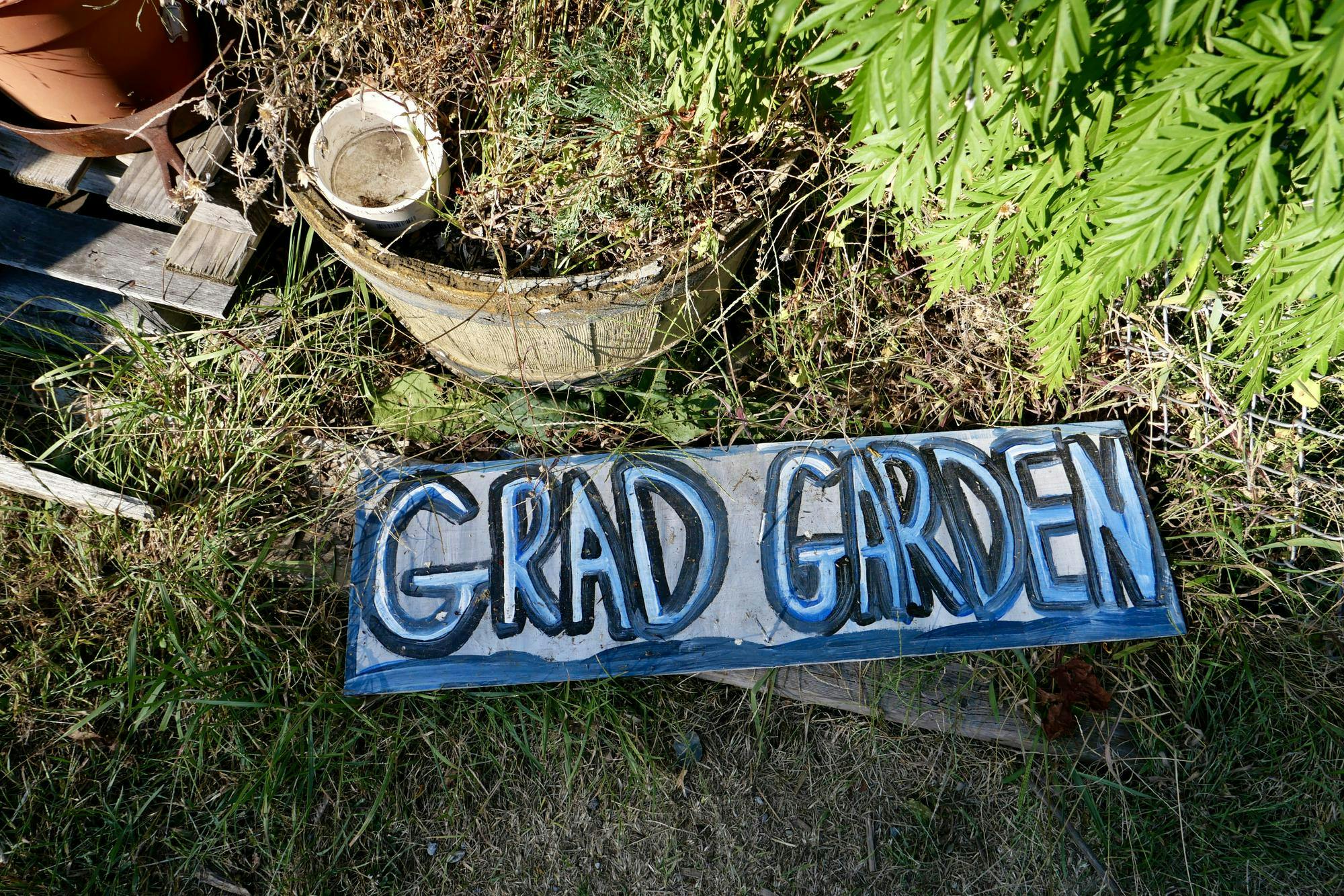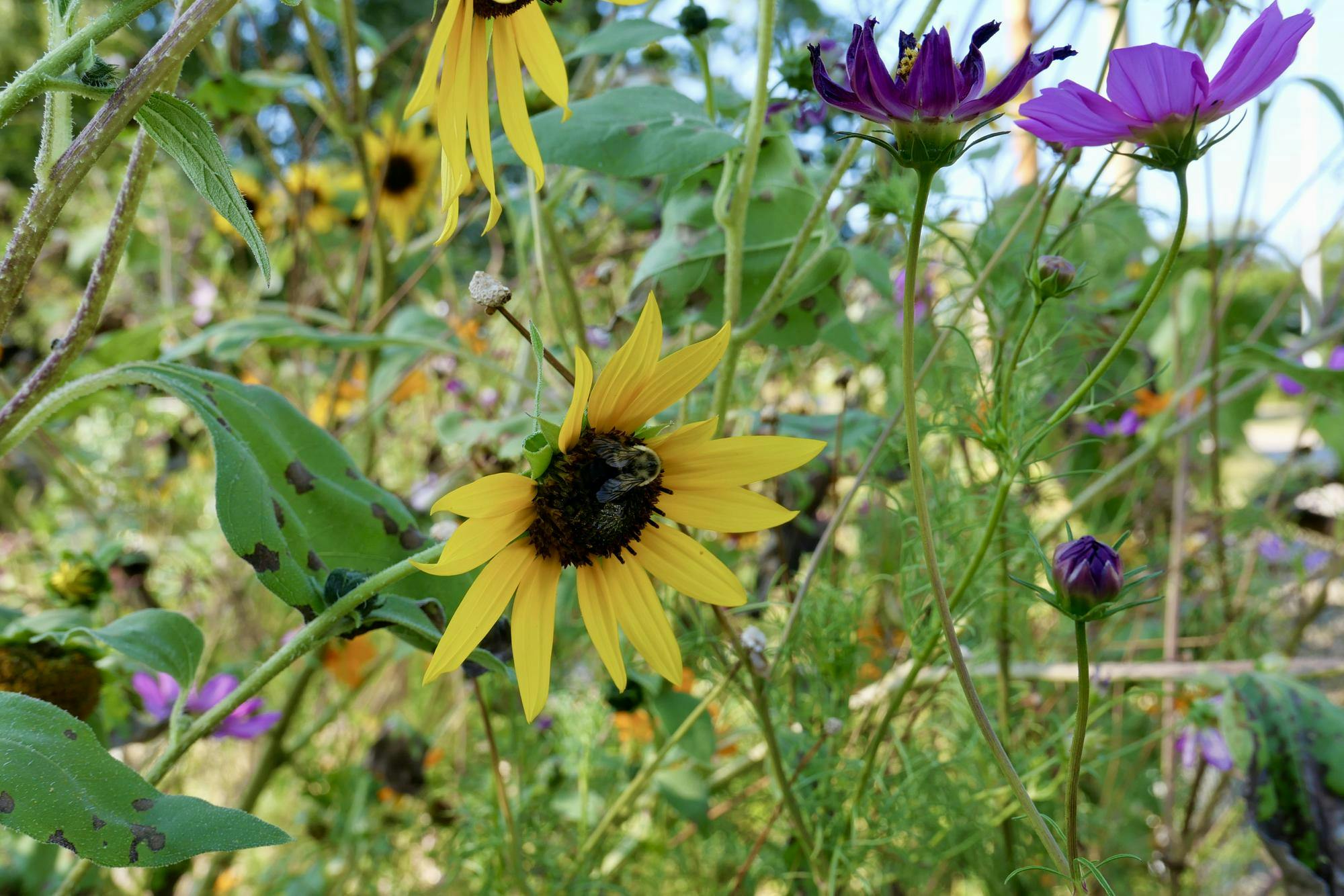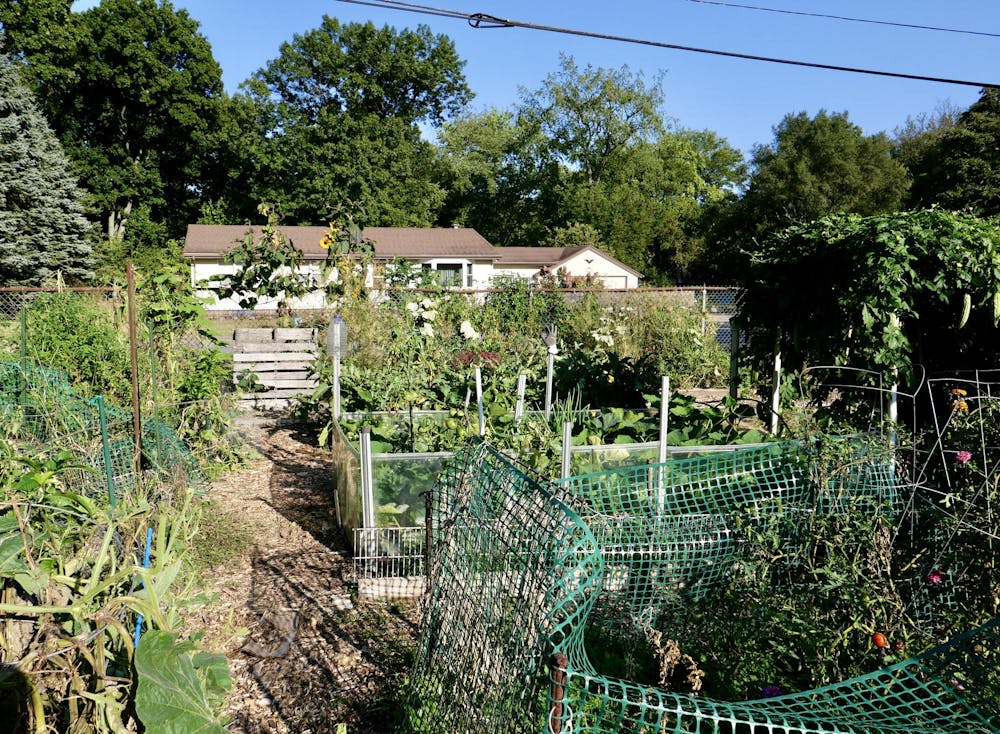Located just off campus along Ivy Road, nestled between Warren Golf Course and Twyckenham Dr., rows of metal planting boxes abound with flowers, fresh herbs and vegetables. The Notre Dame community garden is home to student and staff plots and is run by the graduate student government sustainability committee.
The garden was first conceived in 2010 as a partnership between food services, the Notre Dame Wellness Center, University Health Services and the Office of Sustainability. It was originally located at White Field on the far north end of campus before it moved to its current location at Ivy Road in 2017. In the years since, the garden has expanded to include 100 individual plots, two group-grow plots, two pick-for-free plots, a free library and spaces for students to enjoy the outdoors.
Plants like sunflowers, chrysanthemums and marigolds are grown in the garden in addition to herbs like basil, thyme and oregano. Some fan-favorite vegetable plantings include tomatoes, peppers, corn, eggplants and lettuce.
Graduate student government sustainability co-chairs Suleiman Abdulsalam and Ozioma Nwachukwu said the garden is open to anyone in the Notre Dame community who wants to get involved.

No previous gardening experience is required and the garden is a space people can visit to spend time outdoors and enjoy nature.
“I found the garden interesting because it is another opportunity to connect with nature. It can be really therapeutic sometimes,” Nwachukwu said.
Abdulsalam feels drawn to the garden because it cultivates a sense of community.
“I was looking for community engagement, with nature and with people, so that’s one of the motivating factors and one of the reasons why I decided to join the garden,” he said.
The garden hosts work days once a month to tackle big projects, such as installing new garden beds or fixing the fence around the garden, and these work days also provide members with opportunities to connect with others.
“It gives a concrete time for gardeners to come together and just meet each other, have conversations and share gardening tips,” graduate student Julie Wilson said. Wilson was a previous co-chair of the sustainability committee and served in that position for two years.
The garden’s sustainability goals focus on promoting organic gardening, fostering biodiversity and reducing waste by composting.
“We collaborate closely with Notre Dame landscaping, campus dining and the Office of Sustainability to make the garden as eco-friendly as possible,” Nwachukwu said. “These practices are important because they help minimize environmental impact and create a healthier, more sustainable campus community.”
The community garden is abuzz with adjunct assistant teaching professor of architecture Kai Hu’s innovative ideas for the garden and ways to make it more sustainable.
“[Hu] has been instrumental in bringing new ideas to the garden,” Nwachukwu said.
Hu is interested in permaculture gardening, a type of gardening that mimics nature and is based on designing a garden around the local environment. This form of gardening considers the needs of the natural ecosystem and climate in addition to meeting human needs.
Permaculture gardening includes harvesting rainwater to reduce water use, building up soil and compositing in place of using chemical fertilizers.
In addition to these sustainable practices, the garden also manages a beehive that is overseen by chef Ralph Pieniazkiewicz. Nwachukwu said the beehive plays a crucial role in supporting pollination across the garden.

In terms of future growth, Nwachukwu and Abdulsalam have initiated the process to get the garden approved as an official University club and hope to see more people use the garden as a community space.
That will “get us more resources, more funding … and also get more students involved,” Nwachukwu said. “We have this great [space] and so many people don’t know about it.”
Nwachukwu also discussed increasing educational outreach and using the garden as a classroom to educate people about sustainable practices and how they can implement sustainability in their everyday lives.
“[People] don't necessarily have to have a plot in the garden, if they want to have a space in their home, or they can do something that contributes to environmental sustainability, like composting, just being aware of how our everyday lives affect the environment,” she said.
This past weekend, a writing and rhetoric class visited the garden and helped garden members with weeding. Wilson said she was encouraged to see undergraduate students visiting the garden and wants to make the space more accessible for different groups.
Wilson said she wants to see the garden’s impact on campus continue to grow and part of that growth includes leadership and involvement from faculty and staff, as well as graduate students and undergraduate students.
”I would also love to see the space grow,” she said, ”to have undergrads involved, to have more events and to continue to be a community garden.”










